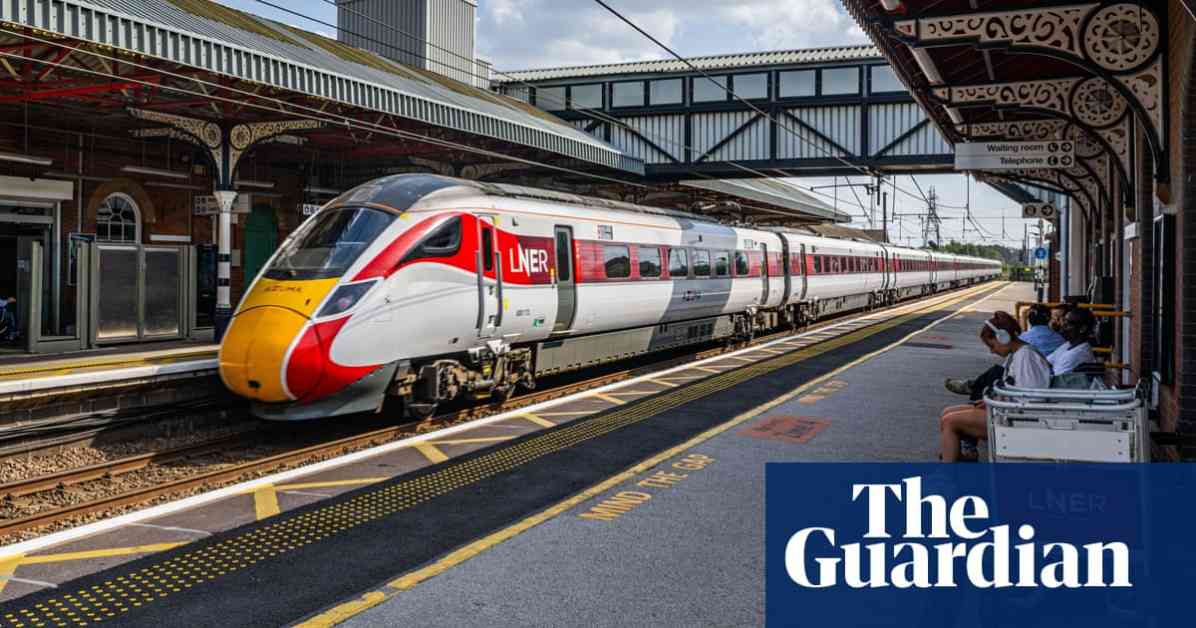Successful Negotiations Lead to the Avoidance of LNER Train Driver Strikes
A potential crisis in the UK’s rail network has been averted as a series of weekend strikes by train drivers on the London North Eastern Railway (LNER) has been called off. The trade union representing the drivers, Aslef, announced that the strikes scheduled to begin on Saturday have been suspended following successful negotiations with the company.
Passengers traveling between London and Edinburgh can breathe a sigh of relief as the prospect of months of disruption has been avoided. Earlier this month, LNER drivers had announced 22 days of industrial action from the start of September until early November. However, thanks to the resolution reached between the union and LNER regarding the breaking of agreements, the strike action has been suspended.
Mick Whelan, the general secretary of Aslef, highlighted the importance of negotiation in resolving issues on the railway. “Once again we have demonstrated that, by sitting round the table and negotiating, issues on the railway can be resolved in a way that means better workplace practices for rail workers and a better service for the traveling public,” Whelan stated.
The dispute between the drivers and LNER is separate from the long-running pay row involving drivers across the UK, which appears to have been resolved after a new long-term pay offer was made. This positive development showcases the power of constructive dialogue in addressing grievances and ensuring a smooth operation of essential services.
Government and Union Response to the Resolution
The transport secretary, Louise Haigh, commended the resolution of the dispute between LNER and Aslef, emphasizing the need to avoid prolonged industrial disputes that disrupt railway services. Haigh stated, “For too long our railways have been brought to a standstill by industrial disputes with no end in sight. This is a constructive step forward to fixing our railways and getting the country moving.”
Highlighting the importance of providing a reliable and efficient rail service for passengers, Haigh recognized the efforts of both parties in reaching a resolution that benefits all stakeholders. The government’s commitment to delivering vital reforms in the railway sector is contingent upon the smooth operation of services and the resolution of any ongoing disputes.
The Public and Commercial Services (PCS) union’s decision to strike over working conditions at Heathrow Airport further underscores the challenges faced in the transportation sector. The union’s members working in passport control at Heathrow terminals have raised concerns about enforced changes to working conditions, leading to industrial action to demand fair treatment and improved working conditions.
Implications for the Rail Industry and Passenger Experience
The successful negotiation between LNER and Aslef carries significant implications for the rail industry and passenger experience. By averting potential strikes and reaching a resolution through dialogue, both parties have demonstrated a commitment to addressing issues proactively and ensuring the smooth operation of train services.
The avoidance of industrial action not only prevents disruption for passengers traveling between London and Edinburgh but also showcases the effectiveness of collaborative efforts in resolving conflicts within the transport sector. The focus on maintaining workplace practices that benefit rail workers and enhance service quality for passengers reflects a shared commitment to the efficient functioning of the rail network.
As the rail industry continues to navigate challenges related to staffing, working conditions, and service delivery, the resolution of the dispute between LNER and Aslef sets a positive precedent for addressing issues through dialogue and negotiation. By prioritizing the interests of both employees and passengers, the parties involved have demonstrated a willingness to find mutually beneficial solutions to complex problems.
Challenges and Opportunities in the Transportation Sector
The ongoing challenges faced by the transportation sector, including disputes over working conditions, pay issues, and operational changes, highlight the need for effective communication and collaboration between stakeholders. The resolution of the conflict between LNER and Aslef serves as a reminder of the importance of constructive dialogue in addressing grievances and fostering a positive working environment for employees.
The decision of the PCS union to strike at Heathrow Airport underscores the broader issues facing workers in the transport industry, particularly regarding changes to working conditions and rostering practices. The industrial action taken by passport control staff reflects a desire for fair treatment and respect for workers’ rights, signaling a need for improved labor relations and workplace practices in the sector.
As the government, unions, and industry stakeholders work together to address the challenges facing the transportation sector, opportunities arise for meaningful change and improvement. By engaging in open dialogue, negotiating in good faith, and prioritizing the interests of employees and passengers, the industry can overcome obstacles and build a more sustainable and efficient transportation network.
In conclusion, the successful resolution of the dispute between LNER and Aslef represents a positive development in the rail industry, demonstrating the power of negotiation and collaboration in addressing complex issues. By prioritizing the needs of workers and passengers, both parties have shown a commitment to maintaining a reliable and efficient rail service while fostering a positive working environment for employees. As the transportation sector continues to evolve, opportunities for dialogue and cooperation present themselves, paving the way for a more sustainable and effective industry in the future.












